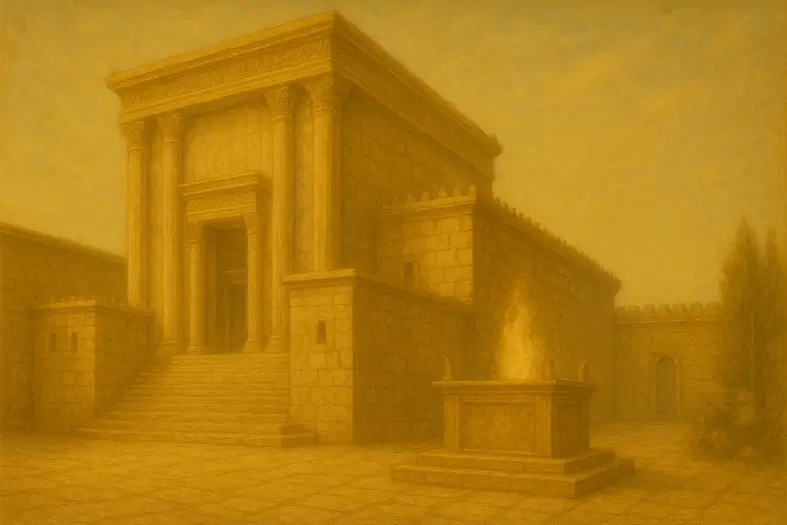


It is forbidden for a kohen to enter the Temple or perform service while intoxicated.
This mitzvah prohibits a kohen from entering the Mikdash or serving at the altar under the influence of wine or strong drink. The Torah commands this immediately after the tragic deaths of Nadav and Avihu, highlighting the seriousness of maintaining proper reverence in the Divine service.
Rambam rules that a kohen who performs service while intoxicated is liable to death at the hands of Heaven. The Sefer HaChinuch explains that intoxication diminishes clarity, reverence, and the sanctity required in the Mikdash, and therefore it is strictly forbidden.
The mitzvah underscores that the service of Hashem requires presence of mind, awe, and discipline. Entering the Temple inebriated would demean its sanctity and undermine the kohen’s role as a representative of Israel before Hashem. Instead, kohanim are to embody sobriety and focus, teaching the nation that Divine service demands full awareness and reverence.
Commentary & Classical Explanation:


Represents the concept of spiritual intentionality, purity, and sanctity—set apart for a higher purpose.
Concerns the Beit HaMikdash, korbanot (offerings), and priestly service.
Signifies awe and reverence toward Hashem—living with awareness of His greatness and presence.
Mitzvot that uphold fairness, honesty, and moral responsibility. Justice is kindness structured — ensuring that society reflects G-d’s order through truth, equity, and accountability.
Mitzvot that define and deepen the relationship between a person and their Creator. These include commandments involving belief, prayer, Shabbat, festivals, sacrifices, and personal holiness — expressions of devotion rooted in divine connection.

Dive into mitzvos, prayer, and Torah study—each section curated to help you learn, reflect, and live with intention. New insights are added regularly, creating an evolving space for spiritual growth.

Explore the 613 mitzvos and uncover the meaning behind each one. Discover practical ways to integrate them into your daily life with insights, sources, and guided reflection.

Learn the structure, depth, and spiritual intent behind Jewish prayer. Dive into morning blessings, Shema, Amidah, and more—with tools to enrich your daily connection.

Each week’s parsha offers timeless wisdom and modern relevance. Explore summaries, key themes, and mitzvah connections to deepen your understanding of the Torah cycle.